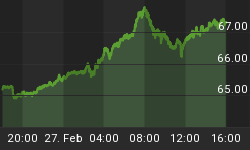Switzerland’s Federal Roads Office (FEDRO) has banned the import of some new Mercedes-Benz, Audi and Porsche vehicles because their diesel engines skirted emissions regulations.
This ban includes the Mercedes Vito van with the 1.6-liter diesel engine, the Porsche Macan with the 3.0- and the Cayenne with 4.2-liter.
The ban will affect vehicles imported after August 17th, but FEDRO said that those that have already been imported with the offending engines can continue to operate provided they are retrofitted to comply with Swiss emissions standards.
Daimler officials said the company had ceased exporting the Vito after the German government ordered a recall and a stop-sale earlier in May. This affected 24 Vitos in total destined for Switzerland.
In addition, Volkswagen’s luxury arm (Audi’s two new models A6 and A7 diesel cars) has been refused authorization to drive in Switzerland due to manipulation of their anti-pollution control systems.
The ban on Audis, though, isn’t as dramatic as it sounds: Since only Audi imported after the second week in August are in question, only 47 cars are affected—and used cars don’t count.
Swiss politicians have for years been trying to draw up a national strategy to deal with the problem of air pollution, but without success.
Elsewhere in Europe, the authorities in France and the UK are planning to ban the sale of new diesel and petrol vehicles from 2040, while Norway and Austria plan to only sell emissions-free vehicles from 2025.
However, since Switzerland itself doesn’t have its own auto manufacturing industry and relies only on imports, it can essentially roll out a broad import ban and regulations. Late last year, the country’s opposition Green party launched the initiative, demanding a ban on sales on new diesel and petrol vehicles beginning in 2025.
Last year, Germany's transport ministry announced that "illegal" software disguising the true level of polluting emissions had been discovered in Porsche's Cayenne and Macan models with diesel engines.
Related; Forget Turkey, This Is The Biggest Threat To European Finance
A total of 22,000 vehicles were recalled, widening the scandal over emissions test cheating that has plagued parent-company Volkswagen for two years, in what it looks like never-ending ‘Diesel gate’ saga.
Volkswagen, the world's largest carmaker, has admitted to using so-called "defeat device" software to cheat regulatory nitrogen oxides emissions tests. The devices allowed the cars to release up to 40 times the permissible limits of polluting nitrogen oxide during normal driving, but this was hidden during emissions testing.
Volkswagen admitted to rigging nearly 11 million cars worldwide with its cheating software. In total, the scandal has cost the company some $30 billion and has led to criminal charges for several employees.
Initially, the scandal emerged in September 2015 when the U.S. Environmental Protection Agency (EPA) filed charges against VW for equipping its diesel cars from 2009 through 2016 with “defeat devices”—software designed purposefully to trick federal emissions tests.
In June, German authorities detained the chief executive of Volkswagen's Audi division, Rupert Stadler, as part of a probe into the manipulation of emissions controls. Since 2016, German prosecutors have been searching the homes of current and former VW, Audi and Porsche employees in connection to the case.
By Tom Kool for Safehaven.com
More Top Reads From Safehaven.com
















